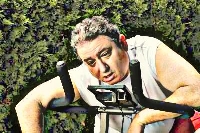
Knowing what to drink after working out helps your body recover from exercise
You have just busted your hump in the gym and feel proud and accomplished, but you’re also pooped and thirsty. What to drink after working out is very important because you need to stay hydrated.
What you drink depends in part on the intensity and duration of your workout. If you have just exercised between 90 minutes and three hours, you have sweated profusely and need to replace fluids ASAP. When people sweat, they lose potassium and sodium. The longer and harder you work out, the more that is lost.
When you sweat, you need to replace electrolytes. Sports beverages hydrate but don’t create digestive problems, which is good.
Recommendations
Drink about 17 ounces of fluids two hours before you engage in exercise. This gives the body enough time to get rid of excess water while keeping you properly hydrated during the work out. Have you ever noticed your legs getting shaky and weak during a workout? This means you need to get some fluids into your body. Hydrate throughout your workout.
~
Many people prefer plain, cold water. It hits the spot, tastes good and re-hydrates them quickly. Others like flavored beverages. If you enjoy the flavored beverages then you are more apt to drink them. Sports beverages contain carbohydrates that give the body energy and hold fatigue at bay.
Try chocolate milk. No kidding! Milk contains minerals and calories as well as some fat and protein, much like a power beverage so consume it if you like milk. However, some may find that milk distresses their stomach. So, if that is the case, don’t.
Some athletes like to consume 100 percent juice because gives them energy and contains minerals that help maintain fluid equilibrium. Some athletes avoid juice because it bothers their stomach, causing bloat and intestinal misery. Try diluting juice with water and see if that works for you.
Warning
Low calorie drinks may not provide you with the calories you require when exercising intensely and particularly when it is hot outside and the individual is sweating copiously.
Avoid carbonated drinks when exercising because they can disturb the stomach. However, if the carbonation doesn’t bother you go ahead and consume it. It will provide energy and it is a fluid. Keep in mind some carbonated beverages contain caffeine, which is a diuretic. You will pee more. When you urinate excessively, you are losing fluid. Caffeine consumption can make the athlete feel even more enervated than usual after the workout.
Dehydration
When a person becomes dehydrated this is no laughing matter. A body can’t function optimally if it doesn’t have enough fluid to fuel it. Dehydration can lead to shock and even to death. Signs of dehydration include weakness; headaches; lightheadedness; dark, yellow urine; thick saliva on the tongue; dry mouth; deep breathing and cramping in the arms and legs.
When dehydration progresses from slight to grave it becomes life-threatening. The symptoms include a fast pulse and fast breathing; gaunt eyes; listlessness; cold feet and hands; fainting; no tears; irritability and a coma.
If the dehydration is mild, give the person water or an oral re-hydration solution. Sports beverages are good but do not give the person caffeine, alcohol or milk. If the person is vomiting, try to get him to take sips of water every 10 minutes. The more he vomits, the more fluid he needs.
When the dehydration is critical, the person may have to stay in the hospital, where he is hooked up to IV (intravenous) fluids.
Try to avoid these problems by staying hydrated in the first place. Take your water bottle with you to the gym and when you are outside working in the yard or even when you are taking your dog on a walk. Your pet may need be parched! Dehydration is deadly, but preventable, for your dog, too.
